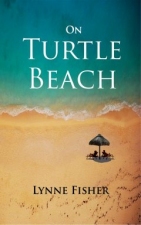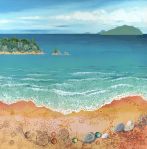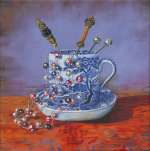I thought I’d do a series of posts on what it’s like at the different stages in the journey of writing a novel and the pros and cons of each stage, with respect both to the writing and the inner feelings and thoughts. So I’m kicking it off with where I’m at now with my second one.
My favourite quote on what the experience of writing a novel is like comes from writer, E.L. Doctorow: ‘Writing a novel is like driving a car at night. You can see only as far as your headlights, but you can make the whole trip that way.’ This is certainly how it feels for me. I know where I’m coming from, and know roughly my end destination, but the getting there is of limited vision, as I’m not someone who plots everything out in minute detail and sticks to it no matter what. In fact I like the limited vision because it can allow being open to a variety of possibilities to consider. In current jargon, I’m both a planner and a panster. However I do use a very detailed mind map timeline for a novel, with three Acts (25% of the whole for Act 1, 50% for Act 2, 25% for Act 3) with dramatic shaping and turning points within, as well as a mid-act turning point, and of course the novel’s climax and then the denouement. And I try hard to keep the conflicts and pressures mounting higher and higher. And my headlights are always focused a little of the way in front of me, where I have notes in the working MS where I’m currently at in the writing, of what’s coming up next.
I’ve been in the habit of looking out for strong structural advice because structure keeps your novel on course, and the most diligent I’ve come across which suits me personally (though with some fluidity to suit your own needs) is by K.L. Weiland. On her website she has a lovely visual coloured chart to download, together with many generous extracts from her book Structuring Your Novel. And she has a story structure database to explore describing the plotting structure of many well-known novels interpreted from her own plotting techniques.
But back to me and my current novel writing journey. I’m about three quarters of the way through the writing of my novel-in-progress, ‘After Black’. I even have a short blurb for it already to keep me focused:
‘Recently widowed Janet returns to her beloved job at the department store, only to find her future happiness threatened by a feisty young woman whom she loathes. The mutual antagonism of the two women leads to challenges Janet could never have imagined.
But at the 70% mark I have been slowing up a bit. I can’t divert myself onto another project at this stage, and as I said in one of my very early posts, it’s very much like climbing a mountain.

At the moment I’m getting near the top, which for me is the novel’s climax (the denouenment is coming down the other side). I can’t go back down, I can’t detour or switch to another path, my route up was chosen at basecamp. I have to keep faith and carry on going up finding little handholds and footholds to cling onto to get me to that precious summit. Writer and fellow INFJ, Lauren Sapala has just written a post on writers needing ‘spiritual stamina’ to see them through and she’s got that right! In her last encouraging line she says ‘And, as a writer, you have enough faith to move mountains’. Maybe that’s what makes a writer, having that faith to keep going. But I can also tweak this to say that a writer needs such faith to climb those mountains and not be distracted by seeing on the far horizon other mountains/writing projects you’re keen to tackle before you’ve finished this particular climb.
Spiritual stamina is certainly needed at the 70% mark, so near and yet so far as they say. But each stage, like life and life events with beginnings, middles and endings, has pros and cons, so let’s take a look at what I perceive these to be at the 70% mark.
Pros
1.Remembering the golden rule of developing conflicts, by now you’ve got to know your characters so well, that they start telling you what they can tolerate and what they can’t, what they’re up for and what they’re not. What their deepest fears are. And you feel you can trust this, you can trust them.
2.Threads, primary plot and subplots, major and minor characters are all established by now. Difficult plotting decisions are mostly all made and you’ve committed yourself to them. There is no room for doubts and confusions and you have to sort these out if they crop up. You sharpen up based on the fact that you’ve made many tiny decisions that there has to be that vital continuity for. You make sure that there is this continuity because the editing is hard enough without having to deal with these kinds of mistakes afterwards. This is itself a stamina building process which we writers have to develop. We work our writing muscles and tone them up. Yes, you will still have doubts, but they will always be there, we all have them, and at 70% , despite your doubts, you are totally invested and that is a great thing all by itself.
3.Despite it seeming far away, you know the end is in sight. You have done all the preparing for this and all your external research is being used right now and after piles of papers being by your side all this time, you are finally getting to use that research in just the right places and that is so satisfying.
4.You can see the next mountain you want to climb on the horizon and that will be your reward for when you’ve finished this climb. You’ll be refreshed and ready to set off again, with even more climbing experience behind you to give you that much needed confidence.
Cons
1.The inner critic can pop up saying things like – ‘Why did you choose to write this story? Is it right for you? Will there be enough characters in it for people to engage with? Enough tension? Enough conflict? You get the picture. Because you know it is too late to turn back and because you’ve been climbing this mountain for some considerable time, you are paused three quarters of the way up, all sweaty and panting for breath and you can begin looking around at other climbers climbing their mountains (and no doubt you perceive them as climbing their mountains faster) and you may wonder why you chose to climb this particular one in the first place. Will potential readers even be interested?
2.The slowing down – I think part of this is wanting to ensure you do justice to all the work you’ve done so far. On the whole, I’m happy with what I’ve got so far, and I’ve learned more about my muse, the fact that I do have one for one thing (which I used to think was a bit far fetched) and I’ve learned to trust it, but I don’t want to botch it when it comes to the climax. This is a make or break time for the reader of your story. And you know this because you are also a reader. And this worry is pretty scary.
3.Another may be that you realise that once you’re finished, then the judgment begins – your own, naturally in the editing, but also from others you share it with for feedback. And you just don’t want that to begin yet!
One piece of advice I can very much trust giving to help you with your project coming to an end, is to have another waiting for you. I strategically wrote the first three chapters of novel number 3 about a year ago, so that I would have this waiting for me to get stuck into. This not only keeps up a certain momentum but also helps you shift your perspective on the one you’ve just finished – you may be able to view it more objectively which will stand you in good stead for the editing and feedback, because you have taken the heat out of your personal investment a wee bit and put it elsewhere.
So wherever you are in your current novel writing journey I wish you great balance between head and heart. And please feel free to share what it’s like for you.
(I’m taking a wee break from posting next week but will be back after that)
(Pic courtesy of pixabay)
















Pingback: Journey Through Writing A Novel : From 0 to 15% The Pros and Cons | Head to Head, Heart to Heart
I love reading about writing, as well as reading, and I found your lucid description of your process very interesting Lynne… I know so well that question, is it interesting?
it’s one I still ask myself ( and my partner) after writing every blog!
I also know so well how much courage it takes to define oneself by actually saying ‘I am a writer..’. words I finally learned to use in my mid- seventies after a lifetime of writing thousands of journalism words every week, as well as a number of books. Once uttered, it gets easier all the time to say who you really are !!! forgive the exclamation marks… everything you said was true, and I too feel that on the internet, exaggeration seems a normal part of life !!!!!!!!!!!!!!!!!
LikeLiked by 1 person
Oh dear, I really started something with the exclamation mark post, didn’t I? Yes, indeed, asking ‘Is this interesting?’ comes up all the time and more so when you’re nearing the end or have finished it. I struggle with saying ‘I’m a writer’ and ‘I’m an artist’ because of what I’m expecting people’s reactions to be, based I think on all the self-hype and over-exaggeration you mention, that I see too. So I can say these now, but I follow it with ‘but I don’t make much money’ (rightly or wrongly I say this) So I still haven’t got this sussed!
LikeLike
Well said!
I added the Doctorow line to my quotations collection at once. I keep trying to explain that to people inarticulately, and he’s captured the point perfectly. 🙂
LikeLiked by 1 person
Thanks Rick, yes, that’s the quote that stands out for me the best!
LikeLiked by 1 person
I appreciate the insight into the writing process. It’s funny–I never consider myself a “writer” although I do write. The idea of writing fiction leaves me as blank as the idea of painting a picture. I’m clueless. I’m in awe of those who do either. And you do it so well. Loved your first book, and I look forward to the second…and the third!
LikeLiked by 1 person
Thank you, Galen…it isn’t easy calling yourself a writer, I fully agree, but I think that’s something to do with how other people can view it. I kind of mutter it, rather than proclaim it, when I’m asked, because right there and then I’m sensing what stereotypes are out there, that may come ironically from other writers, and I don’t feel I belong to this stereotypical image. I love life writing, that is what i am probably tuned-up for the most. Fiction has more boxes to tick, ironically perhaps, less freedom for me, anyway, because there are so many conventions in fiction which the reader expects to see met. Number two is using my experience of working in a department store in the 90s, which I am enjoying, then after that a man undergoing a midlife crisis in number 3 – and very much looking forward to that – and in the present tense for a change too. Anyone who writes, for journalistic purposes, life writing, fiction, self development, whatever, is indeed a writer. And your book was a great read and full of life wisdoms – so together we can consider ourselves writers.
LikeLike
good advice about having your next writing project ready to go. can be an anxiety-producing time when you finish writing a book and wonder what you’ll work on next.
LikeLiked by 1 person
Yes, exactly Libby! Thank you for sharing :>)
LikeLiked by 1 person